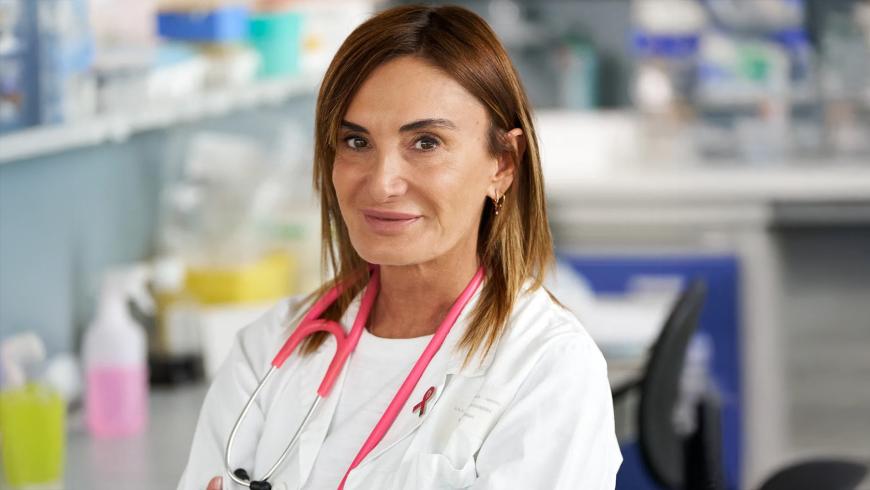- Argomento
- Persone
Dal Marocco al Canada, passando per l'UPO
L'intervista a Oussama Krami Senhaji
Di Stefano Boda
Data di pubblicazione
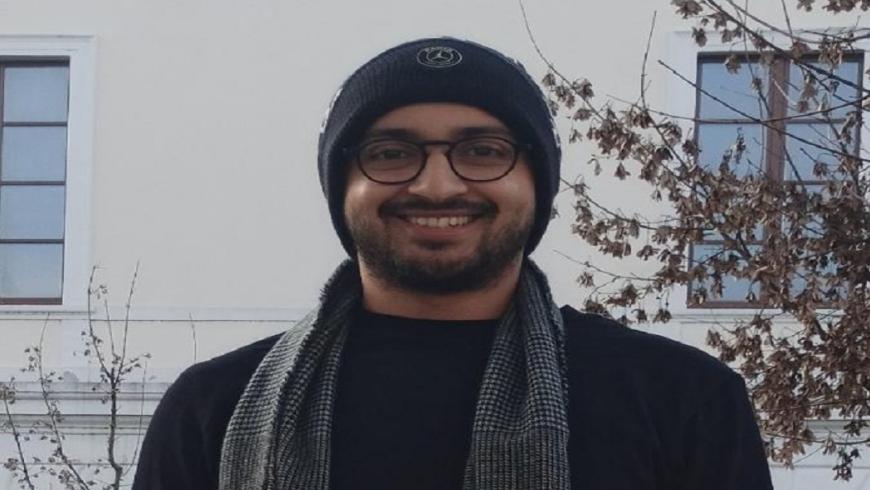
Oussama Krami Senhaji è uno studente marocchino del secondo anno di Medical Biotechnologies. Nei giorni scorsi ha ricevuto l'ammissione ufficiale al corso di dottorato in Bioingegneria, presso l'Università Laval (Québec, Canada).
Di seguito pubblichiamo l'intervista che ci ha rilasciato.
Tell us briefly about your experience in the Master’s degree in Medical Biotechnologies. How did it started? Was it difficult to settle in? How was the impact with Italy / Novara / UPO?
I first heard about UPO from a friend of mine in Morocco, who advised me to apply for this Master’s degree. I came to Italy on August 27th 2019 and I was first introduced to Pr Gaidano, who gave me a general idea about what to expect and to navigate throught the two years Master course.
During the first year I lived in Vercelli, so I had to go back and forth to Novara to attend my lessons. But it was a great experience, I met a lot of impactful friends and collect a lot of memories that I cherish.
In the second year I moved to Novara. Living alone far from your home country gives you more responsibility and shapes you as the man you will become once you start your professional career.
So during these two years in Italy I learned a lot; this experience showed me how to take care of myself. My integration in the Italian sociaty was very easy, I felt always welcomed by everyone, even if I didn’t spea the language at first.
UPO gave me the opportnity to show what I am able to do and other perspectives about my future decisions and my career. Life at UPO helped me to grow up as a person, to be more determend and to focus on my goals.
When did you complete your Master’s degree? What happened next?
I am currently a second year student at the Master’s degree. I plan to graduate in July in order to join the PhD program in Canada on time.
I am doing two internships simultaneously. The first one is for my thesis: I work on multiple projects and on my own project that will be presented as a thesis at the end of the year. The second internship is all for me: I want to train more for the things I will work on in my PhD projects. In this way I will be ready and more prepared at the get go.
How did you get in touch with University Laval? What will you study there?
I got in touch with the professor who will be my supervisor, because for a PhD application you first need to have a research director to be admitted to a particular programme.
I am still in contact with the professor; we exchanged many e-mails to get to know each other, to know what I would be working on and, for the professor, to get an idea of my area of expertise and what my different previous experiences are.
Then I had two final interviews that resulted in accepting me as a part of the research team. Afterwards, I applied to the university platform as an official application indicating that I have already the acceptance of a research director, then I received the official admission. I will be studying and doing research in Bioengineering and biomaterials; as a PhD student I will be working on my own projects and on other projects that wil need my expertise or my input.
What do you expect for the future? What are your plans?
No one knows what the future holds, I did not even imagine that my path would have changed like that before. As for now I have a clear idea of what I want to do: research.
I want to continue in the research field, to help to create tools that will help mankind and that will provide a healthier and easier lifestyle for people in need.
I still picture myself going in this direction: why not continuing after the PhD and doing a Post-doc to stay in the academic field?
Like all students studying abroad, I would like to return and give something back to my country, because Morocco is still considered a third world country and we still have a lot to develop, especially in the scientific field.
But as I said before you can never know what could happen.
Tell us your best memory about your experience in Novara/UPO.
I can not recall a specific memory, but one of the best is the day I was accepted to do the internship in the lab where I am currently doing my thesis. The fact that I got accepted there was very fulfilling, as it turned out to be the best decision I did: because of it, I had a lot of help and mentoring that showed me a new field and new perspective that I was not awear of, which guided me to pursue a PhD in the same field I am currently interning in.
Parlaci brevemente della tua esperienza nel corso in Biotecnologie Mediche. Come è iniziato? È stato difficile ambientarsi? Com'è stato l'impatto con l'Italia / Novara / UPO?
Ho sentito parlare per la prima volta di UPO da un mio amico in Marocco, che mi ha consigliato di fare domanda per questo corso. Sono arrivato in Italia il 27 agosto 2019 e sono stato presentato per la prima volta al prof. Gaidano, che mi ha dato un'idea generale su cosa aspettarmi e su come orientarmi nei due anni di corso.
Durante il primo anno ho vissuto a Vercelli, quindi ho dovuto fare avanti e indietro da Novara per seguire le mie lezioni. Ma è stata una grande esperienza, ho incontrato un sacco di amici e raccolto un sacco di ricordi che ho a cuore.
Il secondo anno mi sono trasferito a Novara. Vivere da solo lontano dal tuo paese d'origine ti dà più responsabilità e ti forma come l'uomo che diventerai una volta iniziata la tua carriera professionale.
Durante questi due anni in Italia ho imparato molto; questa esperienza mi ha mostrato come prendermi cura di me stesso. La mia integrazione nella società italiana è stata molto facile, mi sono sempre sentito accolto da tutti, anche se all'inizio non parlavo la lingua.
L'UPO mi ha dato l'opportunità di mostrare cosa sono in grado di fare e nuove prospettive sulle mie decisioni future e sulla mia carriera. La vita all'UPO mi ha aiutato a crescere come persona, a essere più determinato e a concentrarmi sui miei obiettivi.
Quando hai completato il tuo Corso? Cosa è successo dopo?
Attualmente sono uno studente del secondo anno del corso di laurea. Ho intenzione di laurearmi a luglio per poter entrare in tempo nel programma di dottorato in Canada.
Sto facendo due stage contemporaneamente. Il primo è per la mia tesi: lavoro su più progetti e sul mio personale che sarà presentato come tesi alla fine dell'anno. Il secondo stage è tutto per me: voglio prepararmi di più per le cose su cui lavorerò nei miei progetti di dottorato. In questo modo sarò pronto e più preparato quando inizierà.
Come sei entrato in contatto con l'Università Laval? Cosa studierai lì?
Mi sono messo in contatto con il professore che sarà il mio supervisore, perché per una domanda di dottorato bisogna prima avere un direttore di ricerca per essere ammessi a un determinato programma.
Sono ancora in contatto con il professore; ci siamo scambiati molte e-mail per conoscerci, per sapere su cosa avrei lavorato e, per il professore, per avere un'idea della mia area di competenza e quali sono le mie diverse esperienze precedenti.
Poi ho avuto due colloqui finali che hanno portato ad accettarmi come parte del team di ricerca. In seguito, ho fatto domanda ufficiale alla piattaforma universitaria, indicando che ho già l'accettazione di un direttore di ricerca; infine ho ricevuto l'ammissione ufficiale. Studierò e farò ricerca in Bioingegneria e biomateriali; come studente di dottorato lavorerò sui miei progetti e su altri progetti che avranno bisogno della mia esperienza o del mio contributo.
Cosa ti aspetti per il futuro? Quali sono i suoi progetti?
Nessuno sa cosa riserva il futuro, non immaginavo nemmeno che il mio percorso sarebbe cambiato così. Per ora ho un'idea chiara di quello che voglio fare: ricerca.
Voglio continuare nel campo della ricerca, per contribuire a creare strumenti che aiutino l'umanità e che forniscano uno stile di vita più sano e migliore per le persone che ne hanno bisogno.
Mi immagino ancora di andare in questa direzione: perché non continuare dopo il PhD e fare un Post-doc per rimanere nel campo accademico?
Come tutti gli studenti che studiano all'estero, mi piacerebbe tornare e restituire qualcosa al mio paese, perché il Marocco è ancora considerato un paese del terzo mondo e abbiamo ancora molto da sviluppare, soprattutto in campo scientifico.
Ma come ho detto prima non si può mai sapere cosa potrebbe succedere.
Raccontaci il tuo miglior ricordo della tua esperienza a Novara/UPO.
Non riesco a scegliere un ricordo specifico, ma uno dei migliori è il giorno in cui sono stato accettato per fare il tirocinio nel laboratorio dove attualmente sto facendo la mia tesi.
Il fatto di essere stato accettato lì è stato molto appagante, in quanto si è rivelata la migliore decisione che ho preso: grazie ad essa, ho avuto molto aiuto e un tutoraggio che mi hanno mostrato un nuovo campo e una nuova prospettiva di cui non ero a conoscenza, che mi ha guidato a perseguire un dottorato nello stesso campo in cui sto attualmente facendo lo stage.
Ultima modifica 12 Settembre 2022
Leggi anche
Matteo Caramelli: dal dottorato in UPO alla sfida di "Chi vuol essere milionario?"
Dall'Università di Pisa al Piemonte Orientale, il dottorando Matteo Caramelli, ricercatore presso il DISUM nell'ambito delle opere pie nel territorio tra Lucca e la Versilia, è stato protagonista durante l'undicesima puntata del programma "Chi vuol essere milionario?".
- Argomento
- Persone
Data di pubblicazione 16 Febbraio 2026
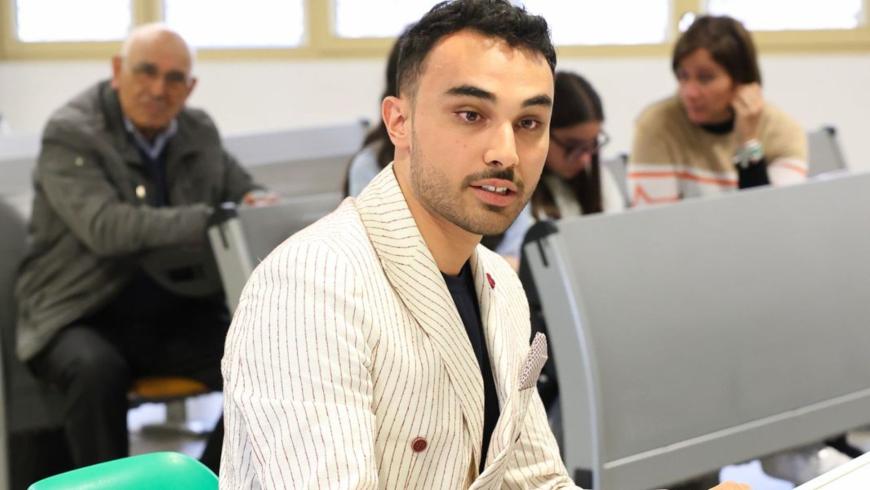
Premio America Giovani: Martina Migliasso premiata alla Camera dei Deputati
Il prestigioso riconoscimento della Fondazione Italia USA è stato assegnato alla neolaureata in Giurisprudenza per l’eccellenza del suo percorso accademico e la tesi sulla maternità surrogata.
- Argomento
- Persone
Data di pubblicazione 27 Gennaio 2026
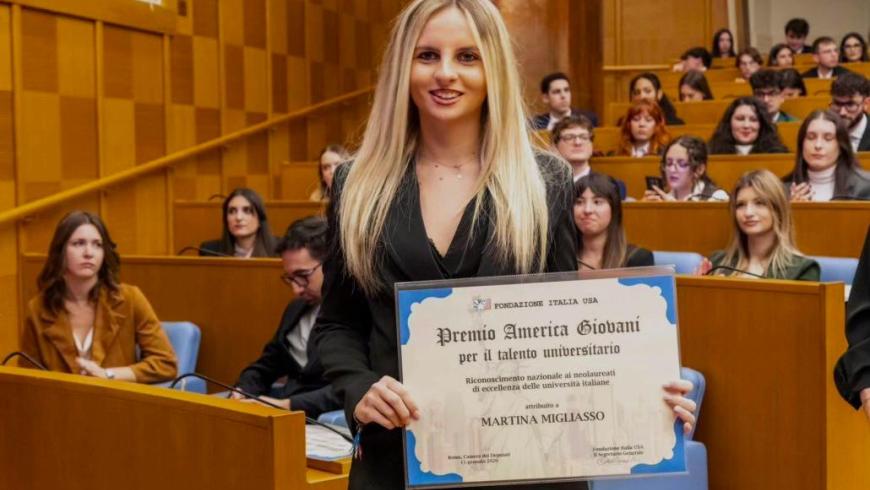
La professoressa Anna Chiara Invernizzi è "Novarese dell’Anno 2025": al Broletto la consegna del Sigillum
La docente del DISEI ha ricevuto la massima onorificenza cittadina per il suo impegno che unisce competenza accademica e solidarietà sociale. Durante la cerimonia del 20 gennaio, nella Sala dell'Arengo del complesso del Broletto, sono stati premiati anche Danila Finzi, presidente dell'AVO, e Fra' Marco Costa dei Frati di San Nazzaro.
- Argomento
- Persone
Data di pubblicazione 22 Gennaio 2026
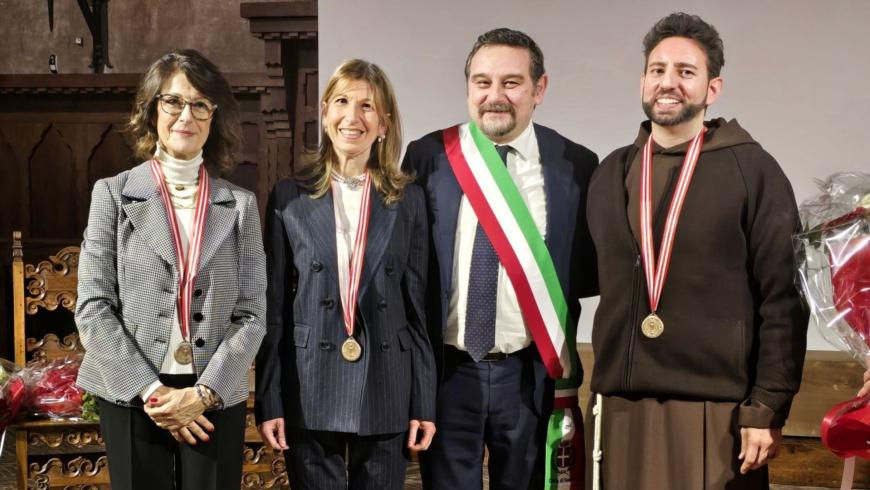
Alessandra Gennari valutatrice della ricerca di eccellenza sui tumori del seno per l’American Association for Cancer Research
L’American Association for Cancer Research (AACR) ha invitato la professoressa Gennari (Dipartimento di Medicina traslazionale, Università del Piemonte Orientale) a unirsi al Scientific Review Committee per i finanziamenti alla ricerca sul cancro al seno. Un incarico di prestigio internazionale che vedrà la Docente UPO impegnata fino al 2028 nella selezione dei progetti più promettenti a livello globale per sconfiggere la patologia, all’interno della più antica e vasta organizzazione mondiale in questo ambito.
- Argomento
- Persone
Data di pubblicazione 20 Gennaio 2026
